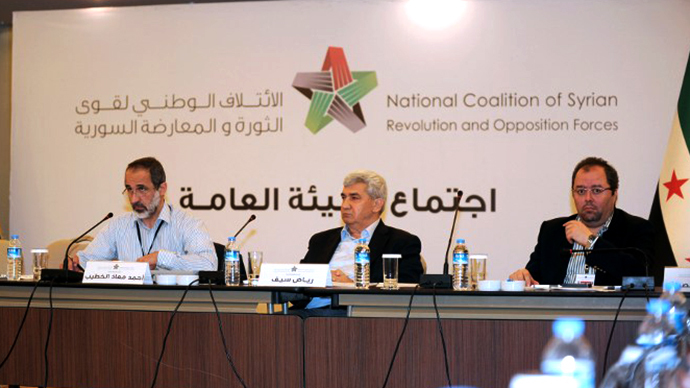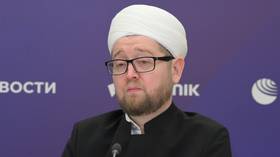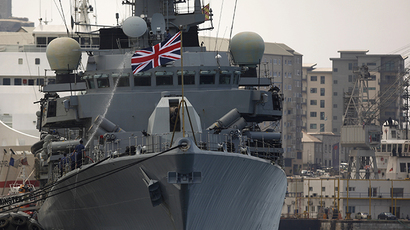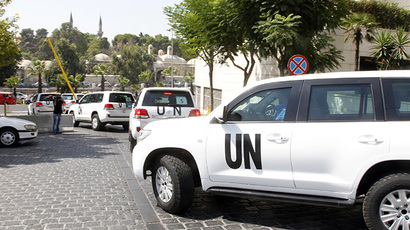Syrian opposition: No Geneva peace talks after 'chemical attack'

The Syrian National Coalition, the official opposition to President Bashar Assad, has called off the long-delayed peace summit in Geneva, following an alleged chemical attack last week.
“We refused to speak about Geneva after what's happened. We
must punish this dictator, Bashar the Chemist we call him, and
then we can discuss Geneva," coalition Secretary General Badr
Jamous told Reuters in Istanbul.
The Syrian National Coalition was meeting with international
opposition backers Friends of Syria in Istanbul, nominally to
discuss the upcoming peace talks.
Opposition leaders have blamed Bashar Assad for unleashing
Wednesday’s chemical assault on a rebel-controlled Damascus
suburb, which Doctors without Borders (MSF) says took at least
355 lives.
Since then, Arab League-United Nations envoy Lakhdar Brahimi, who would have mediated the negotiations has attempted to salvage the conference, saying that the incident proved “that no military solution is possible”.
Brahimi and other diplomats had hoped Monday's Istanbul meeting would sort out final details before the UN-backed talks that had been hampered by escalation of warfare in Syria, political falling-out among the opposition and arguments over pre-conditions for the negotiations.
Geneva-2, conceived at a summit in the same city over a year ago, was meant to set out conditions for a ceasefire, and outline the transition to a new regime.
Earlier on Monday, Russian Foreign Minister Sergey Lavrov said the timing of the chemical attack “suited” the opposition, “who obviously do not want to negotiate peacefully”, instead they want to “sabotage” the talks.
“Why go to a conference if you believe that the regime’s infrastructure will all be destroyed anyway by allies, and then you can just march into Damascus unopposed, and take control?” said the official in Moscow.
Some Western politicians have called for a military intervention
in Syria, following reports of chemical weapons use in a Damascus
surburb. The attack had previously been designated as a ‘red
line’ by the West.
A protest by several hundred exiled Syrians in Belgium also
called for the West to step in.
“We are asking for military intervention. We want the
Europeans to protect the Syrian population, who are being
massacred before the entire world. What happened to human
rights?,” asked Rabih Chaar, said the local Syrian opposition
to Euronews.
A UN-mandated expert team is currently in Damascus, attempting to unravel the timeline of the chemical alleged attack.














